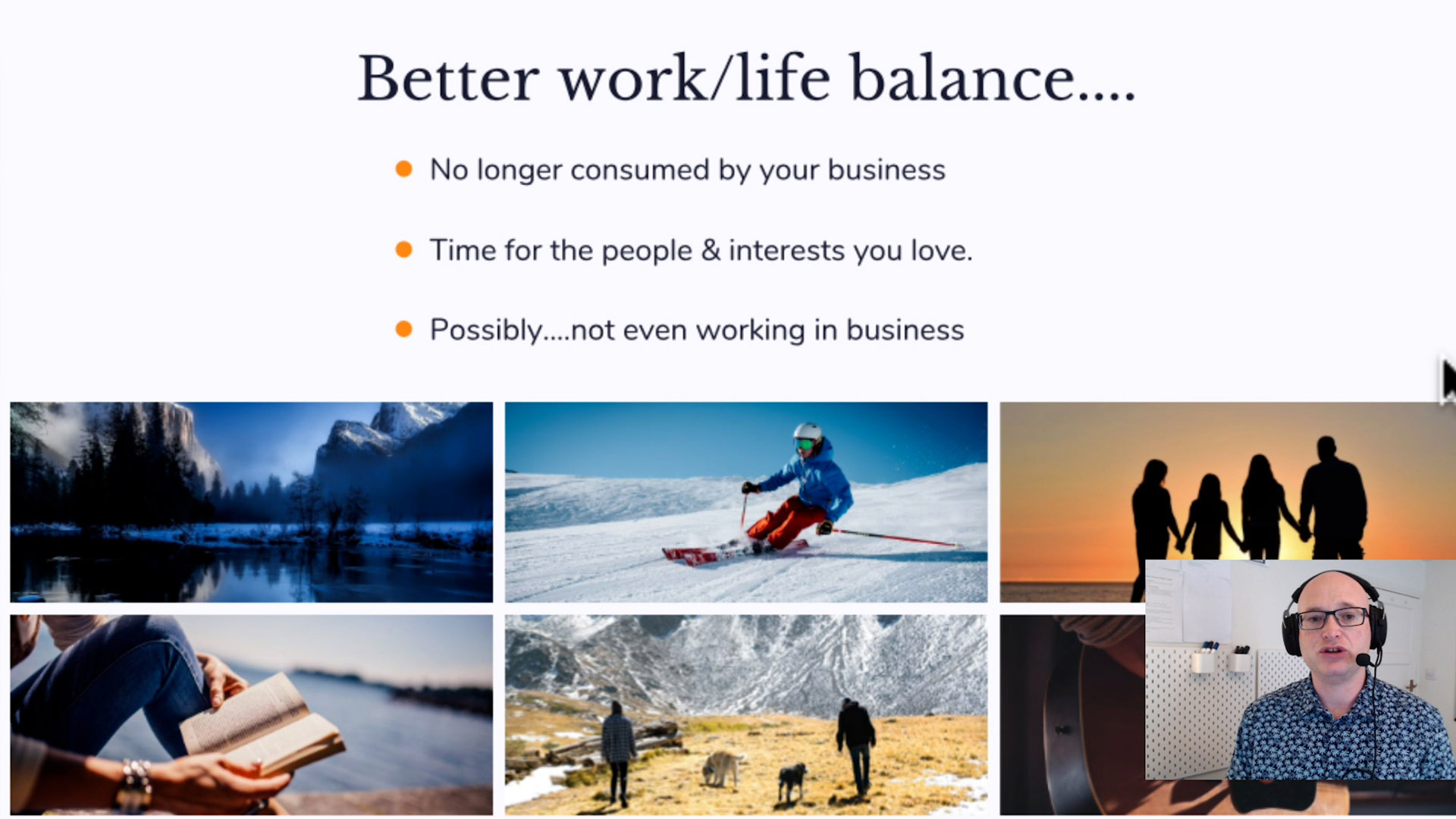“Shut up and do it already”
If your team needs to stop an alien invasion, or get people out of a burning building, there’s no time for sugar coating words.
But if your team is more Desk-based-reality, and less Hollywood-movie-fantasy, a fresh approach to communication is needed.
The kind of approach to comms that fosters empathy, increases harmony, and gets everybody working for each other.
How important is communication?
The results from this reputable survey show that clear and effective communication is a big priority for business people (both leaders and team members), when people consider the factors that influence team productivity.

Stress and enjoyment impact talent retention
Of course, communication not only helps productivity, it helps team members reduce (1) stress levels and (2) enjoy their jobs. Two factors that significantly impact:
- Happiness and wellness of team members
- Number of sick days your team members takes
- Your company’s ability to keep the best talent
We’re not in the workhouse era any longer… Given the option, people don’t stay in jobs that make them unhappy or sick.
What happens when a team doesn’t communicate well?
Poor communication, or the lack of it, is a major cause of conflict in teams.
If you think about it…
Many of the problems faced by companies like yours stem from poor communication or interpersonal problems between team members. Improving comms would help to eliminate those problems and possibly give your business a competitive advantage…
When team communication improves, you’ll see a positive impact on:
- sales efforts
- customer service
- talent retention, to name but a few areas
Who needs to get good at communication?
The ability to communicate effectively is a skill that everyone needs, but in reality, few people are comfortable with. Everyone needs to work on mastering these skills It’s one of the essential skills everyone will need at work, no matter their role.
But it’s often a skill people don’t know how to develop themselves. How do you help team members get essential communication skills? Teach them!
7 communication skills to teach your team members
Here are seven communication lessons that your team will benefit from learning:
1) Listen actively with empathy
Why it matters? Listening is the primary means by which people are validated as individuals and understood by others. When people listen to us, it feels like we matter, and that our thoughts and feelings matter. In contrast, when we’re not listened to, we feel isolated and disconnected from those around us.
Therefore, one of the best ways for strengthening team bonding and team connectedness is through improved listening.

Listening bonds team members together
Get started with being a better listener by:
– Understanding the context of the conversation: Is this a chat about football down the pub, a talk about a shared challenge at work, a deep conversation about a challenge or opportunity that is personal to that individual. Depending on the context, both the style of the conversation and the amount of input from you (the listener) must be adapted. E.g. a chat at the pub has more back and forth, a conversation about someone’s individual challenges requires more listening.
– Asking questions that prompt deeper stories or get people to open up about what is really important to them.
– Giving the other person your undivided attention (nodding, making eye contact, putting phone away, etc)
– Responding messages with nonverbal cues like facial expressions and body language.
– By not making it about you: don’t interrupt, don’t assume you know what they will say, don’t start talking about a similar incident/story you experienced, don’t shut people down because you don’t have time.
– Use clarifying questions. These help the receiver think more deeply about what’s being shared. For example, “what did you mean when you said ‘…’?” or “What was your thinking behind that idea?”
– Use summarising questions. These help the receiver reflect on what has been said. For example, “What are your thoughts on that?” or “How do you feel about that now?”
– Asking people how they really feel and meaning it (i.e. don’t avoid it).
2) Acknowledge contributions by thanking people verbally
Why it matters? It stimulates a culture of appreciation which makes people feel accepted, cared for and recognised. Ultimately, people want to feel validated and have a sense of purpose. A simple “Thank You” accomplishes both of these things for them.
Additionally, when we use words like “thank you” in public, it signals to others that we are willing to show appreciation – which can have a big impact on our reputation as leaders and team members. After all, who wouldn’t to work alongside a person with a reputation for being generous and kind?
How to do it:
– Smile when you say “thank you” – the physical act of smiling forces our body to feel happier
– Say it at a time and place where your appreciation will be most appropriate (eg not during a challenging project review)
– Make a point of showing appreciation for small things, as well as big achievements. Wherever possible, show your gratitude towards the little things that people do every day, it can really make a difference!
3) Encourage feedback from all stakeholders before making decisions
Why it matters? Effective decision making requires input from stakeholders. In order to make good decisions, everyone who will be affected by the outcome must have their thoughts and ideas incorporated into the process. E.g., Get the opinion of your sales representatives, marketing team, and IT staff before changing your CRM software.

Seek feedback from others before making decisions
How to do it:
– As a leader or member of a team, make a point of including other people’s perspectives before making decisions.
– Ask for feedback from key stakeholders (i.e. the end user or those who will be affected by the decision)
– Ensure that you listen effectively – ask questions rather than make assumptions, record phrases and try to go beyond the first answer you receive.
4) Share knowledge openly through collaboration
Why it matters? Knowledge sharing is one of the key ways in which we exchange ideas, opinions, and perspectives. Collaboration using knowledge sharing creates new opportunities for innovation and increased creativity – think about all those times you have been stuck on a problem, someone has inspired you by sharing their prior experiences that help solve your current challenge… how cool was that?!
How to do it:
– Make knowledge sharing easy by encouraging people to share resources and information
– make it a two-way street, don’t just ask for help, offer to help them too. If you know something that can be of use to someone else in your team, share it with them!
– Consider providing some more formal support like an intranet or an internal blog.
5) Show some vulnerability and be open about mistakes
Why it matters? It’s OK to make mistakes (so long as you learn from them). Letting others know that you are human can give people the confidence to work with you, because they know that you’re not perfect! Admitting when you’ve done something wrong can increase your credibility and earn you respect.
Nurturing a culture of learning from mistakes, rather than finger pointing and apportioning blame, is good for team bonding. It brings people together rather than tearing them apart.

Mistakes happen. Use them to strengthen bonds and learn lessons.
How to do it:
– Share ideas and be open about mistakes you have made in the past. Discuss how you have handled these mistakes and what you learned from the process.
– Don’t make excuses, just say honestly that it was a mistake and then move on to discuss how you might do things differently next time.
– Ask for other people’s help and support – this can sometimes be your greatest ally when dealing with setbacks. When we ask for help, it can change the perception of our problems because we are taking responsibility and therefore showing that we think that ‘we can fix this’.
6) Learn the ‘right way’ to write project and task briefs for others
Why it matters? Writing briefs that are clear and concise help to ensure better project outcomes. Poor written communication skills can cause projects to fail, resources to be wasted and excessive friction that just means people are on edge.
How to write better briefs:
– Draft your brief using the SMART criteria (specific, measurable, realistic, relevant, tangible). Make sure you have a clear objective for what you want people to achieve from the deliverable. For example ‘write a report’ isn’t specific enough – ‘write a report on our product sales in China and the impact of exchange rates over the last three years’ is more specific.
– Make sure you convey any necessary information that your team members will need to complete their tasks effectively, but avoid adding too much detail (you don’t want them to copy exactly what you have done).
– Be clear on objectives, permissions, and resources available
– Give the execution team wiggle room. The situation on the ground might be different to what you expected. Give them room to adapt and win.
7) Be willing to listen and learn from constructive feedback
Why it matters? It allows you to learn from others and improve yourself. It’s particularly important in team environments where there is natural competition between members. When people feel that they can’t be honest with each other, team building and collaboration breaks down.
How to receive feedback:
– It’s important to listen well. Don’t argue or interrupt. Instead, focus on the issues being raised and understand them before responding.
– Write down questions you have in order to clarify your understanding of what someone is saying
– Be open to criticism. It doesn’t mean that you’ve failed – it just means that you can learn from what happened and do better next time.
– Ask for praise and feedback is you feel you need it
How to give feedback:
-Be sensitive when giving feedback – make sure you’re protecting the other person’s feelings (e.g., choose a good time, don’t criticise in front of others).
– When giving feedback, focus on behaviours not the individual. E.g., Do say “I’d love to see if using X approach would improve the result. Don’t say “I think you choose a terrible approach for executing this task”.
– Praise the behaviour you want to see more off and don’t focus on the behaviour you want to see less of. Focusing on the positive will help them change their attitude and improve their performance in this area.
Managing feelings and hurt:
– Sometime constructive feedback is helpful but still hurts. Realise that the other person is trying to help you be better, rather than just being mean.
– Realise that the other person is just trying to do their job (e.g., encouraging people to achieve goals on time) rather than trying to undermine you or put you down.
Desk-based teams need to communicate effectively.

Listening and understanding is vital
Communication is a vital skill for any team. It’s not just about being able to talk – it’s also about listening and understanding what others are saying. If you can’t do this, your project will fail. And if you’re in charge of managing desk-based teams, then it’s your responsibility to make sure they know how important communication skills are.
That’s why we’ve created training that includes sessions on communication skills like giving and receiving feedback, writing clear briefs and asking for help when needed. We want every desk-based team member to have the tools they need so they can succeed at work!












